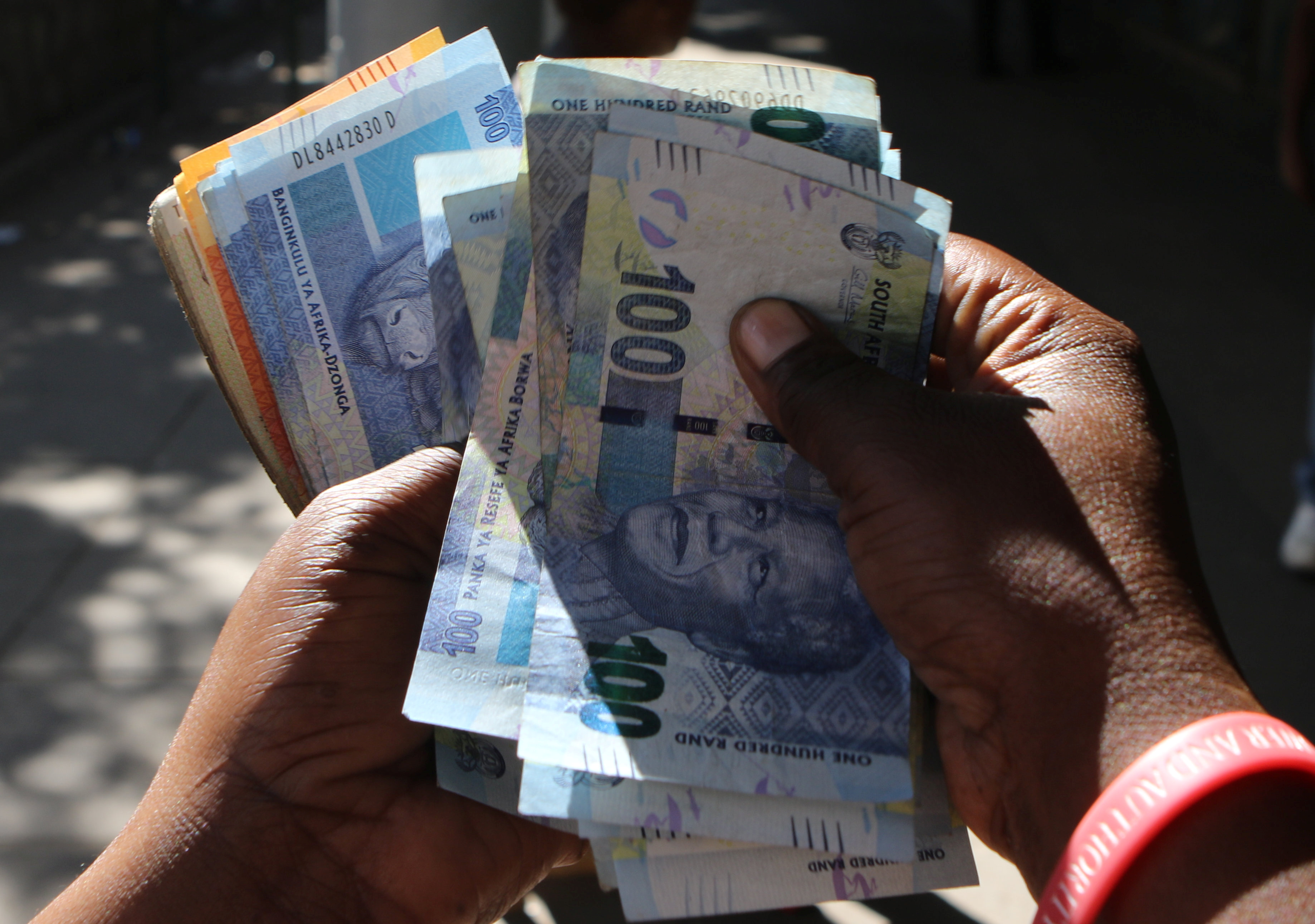
A street money changer counts South African Rands in Harare, Zimbabwe, File. REUTERS/Philimon Bulawayo
JOHANNESBURG, April 30 (Reuters) - South Africa's rand eased on Friday as weaker-than-expected Chinese factory indicators and firmer economic growth in the United States put demand for riskier currencies under pressure.
At 1600 GMT, the rand was 1.38% weaker at 14.5050 per dollar, adding to the previous session's losses.
Trading this week has been volatile, albeit within a narrow range, with the rand failing to hold below the 14.20 technical resistance mark despite bull-plays inspired by the high yield on offer in the face of loose Fed policy.
The rand has lost momentum as investors worry about local economic growth and the duration of expansionary fiscal and monetary policies in developed economies that have so far supported flows into the currency and a healthy trade surplus.
China's manufacturing purchasing managers' index (PMI) fell slightly in April as supply bottlenecks and rising costs weighed on production.
Strong U.S. economic growth in the first quarter, with gross domestic product increasing 6.4%, took some of the steam out of the rand's rally, with traders warning that South Africa's own economic struggles may weigh on its strength.
However, South Africa on Friday posted its largest trade surplus on record for March at 52.77 billion rand ($3.67 billion), from a revised 31.22 billion rand in February, driven by higher commodity and mineral exports.
Analysts had expected the rand could take another beating in coming days if the trade surplus narrowed more than expected.
Bonds were also weaker with the yield on the benchmark 2030 government issue up 2.5 basis points to 9.290%.
Shares on the Johannesburg Stock Exchange (JSE) edged lower, extending a fall from Thursday evening, as foreign investors continued to take profits.
The benchmark all-share index (.JALSH) closed down 0.68% at 66,937 points and the blue-chip index of top 40 companies (.JTOPI) lost 0.67% to 61,096 points.
The local stock market, which has been among the best performing bourses in emerging markets this year, gave a negative return of 1.18% in April.
Friday's fall was led by the country's banks, often considered to mirror local economic recovery prospects. The banking index (.JBANK) reversed all its April gains and ended 3% lower, also halting a four-day winning streak.